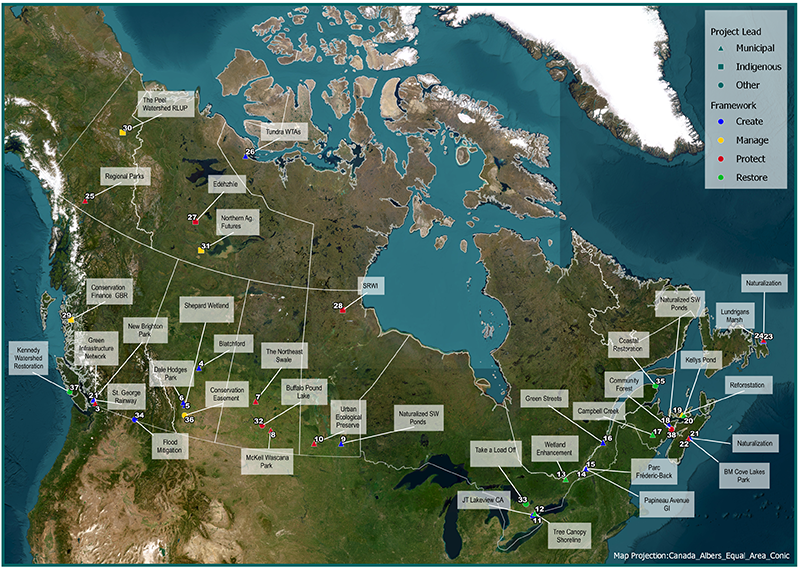Implementation of Nature-Based Solutions in Canada State of Play Report
Photo credit: Greg Debicki, City of Calgary, with permission. 2023
Project Details
Location: |
Canada | |
Client: |
David Suzuki Foundation | |
Duration: |
August 2022 – January 2023 | |
Team Member(s): |
Jimena Eyzaguirre, Cedar Morton, Alex Crew, Natascia Tamburello | |
Practice Area(s): |
Nature Based Solutions | |
Services Employed: |
Strategic planning and policy analysis, Science communication |
The Problem We Aimed to Solve
Nature-based solutions (NbS) can help to address social, economic, and environmental challenges while maximizing co-benefits for humans and ecosystems, but there has been no comprehensive inventory of NbS projects in Canada or any broad assessment of their implementation success. The David Suzuki Foundation sought to address these gaps by compiling a baseline inventory with a focus on municipal-scale NbS projects and three types of projects: 1) protecting natural ecosystems, 2) improving management of working landscapes, and 3) restoring or creating new ecosystems.
How We Helped
We reviewed the current state of Nature-based Solutions (NbS) implementation in Canada, first developing a project typology and a database of projects, then assessing project implementation success by applying the IUCN Global Standard for Nature-Based Solutions. We adapted the IUCN assessment framework to consider ecosystem service provision, ecosystem disservices, local challenges addressed, and local capacity. We also examined the types of NbS used, the inclusivity of decision-making processes, and factors influencing implementation success. A final report includes four case studies that elaborate on enablers and barriers to effective NbS implementation.
Our Project’s Impacts
Over half of NbS projects in the inventory are focused on restoring or creating ecosystems and these projects have broadly achieved moderate implementation success. Factors most influencing success include political, cultural, and financial. Projects at the municipal level tend to focus on carbon sequestration, flood mitigation, and stormwater management. These projects are driven by local service demand and tend to be smaller in scale compared to Indigenous-led initiatives, giving the latter an impact advantage using our evaluation scheme. We highlight knowledge gaps such as uncertainty in NbS performance, limited knowledge about the potential negative impacts of NbS implementation, and uncertainty about how to set priorities for NbS implementation. We also offer eight recommendations, for monitoring, development of spatially explicit NbS project inventories, and increasing public and community engagement.


